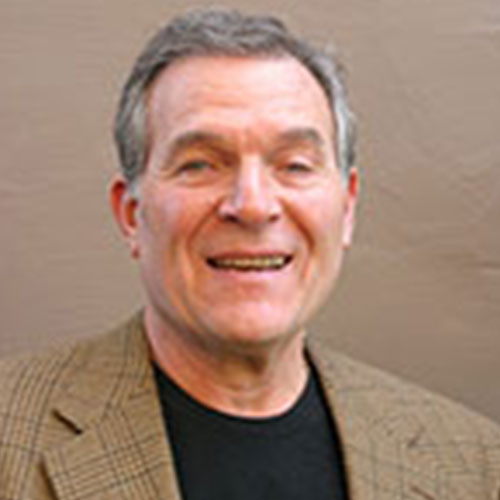The Psychology of Reunions
This summer my wife, Nan, and I attended our 50th high school reunion. As a practicing clinical, forensic psychologist for 40 years, I wondered if much had been written or studied about the psychology of reunions. I was surprised to find nothing in professional journals, but a number of articles in newspaper and magazines, like Psychology Today, have been published.
My wife of 44 years graduated with me in 1965, in the same class of over 400 students from a suburban high school in Milwaukee, Wisconsin. Nan and I traveled from Arizona to celebrate this significant marker in our lives.
Nan grew up in that neighborhood and established many friendships. She was involved in a number of school activities. She worked hard academically and strove to expand and enrich her social network. True to form, she is part of the reunion committee.
In contrast, I was most definitely not a member of the “in crowd” then—or a member of any other group for that matter. Coming to that school my freshman year from the “inner city,” I felt out of place. My dad begged me for years to engage in school but, like most teens, I felt he just didn’t understand.
I also did not distinguish myself academically, as I did the bare minimum to just get by. I had “adolescent myopia,” as I like to call it in many of my teenage patients: I could not envision the future. I could see about as far ahead as the coming weekend those days. Understandably, Nan and I did not date in high school.
Contemplating a reunion is like a time warp. We are reminded of our adolescent vulnerabilities—our fears and the then ever-present self-consciousness. It brings us back to that awkward phase (for many of us) which is recalled more favorably by some than others. Those early emotions are indelible; they stay with us for a long time—perhaps forever. Not surprisingly, what little research exists seems to indicate that those alumni who generally had a positive experience in high school are more likely to attend a class reunion—especially an earlier one.
Reunions promote self-reflection. We ponder where we have been versus where we are now. As we look in the mirror, day after day, over the years we fail to appreciate the inevitable changes that have occurred and are occurring. (I keep telling Nan we have to look for younger friends.) However, by attending a later reunion (40th or later) the comparisons can be gratifying—or frightening.
For some, coming to a reunion means dieting, shopping, and getting a makeover. The experience, though, should be less about comparisons and more about connecting.
According to an article in the Chicago Tribune in 2011, every reunion has its distinct personality:
The 10th reunion is the least well-attended and is probably the most pretentious.
The 20th reunion is the best-attended. Attendees are becoming diversified in their lives and are much less superficial than the decade before.
In the 30th reunion grads’ lives are quite varied due to divorce, remarriage, kids of all ages, and job changes. Attendees are more confident and thus fewer bring their spouses. (I recommend if the husband/spouse is unlikely to know anyone, don’t bring him; wives, on the other hand, tend to do just fine in this situation.)
By the 40th reunion the lives of the attendees become more similar, as they begin to confront the passing of “middle age” into “old age,” face illness, and are dealing with retirement.
The 50th—the “golden” reunion—is the second-best attended reunion. Nostalgia is very important. Most of the past pretense is gone.
Beyond the 50th, attendance at reunions tends to be much smaller. Those who do attend are glad to be out of the house—especially if their children let them drive the car.
Erik Erikson, a highly acclaimed psychoanalyst and a disciple of Anna Freud (Sigmund’s daughter) wrote a very popular book in 1950, Childhood and Society. A chapter in that book is entitled “Eight Stages of Man.” This chapter was particularly well-accepted, as Erikson extended (Sigmund) Freud’s psycho-sexual developmental theory from adolescence (where development ended as far as Freud was concerned) through the elderly adult. This psycho-social developmental continuum, I believe, is relevant to the psychology of reunions:
Intimacy versus Isolation-
According to Erikson, between the ages of 18 and about 35 the young adult seeks committed loving relationships. Marriage and children are important. Love and intimacy are the goals. Isolation occurs if these goals cannot be attained. This is a major issue for individuals attending their 20th reunion.
Generativity versus Stagnation-
From about age 35 to 60 we are focused on our careers, maintaining our relationships, and becoming involved in community affairs. The objective at this stage, per Erikson, is productivity and caring. If we fail in this regard, we become stagnant and unproductive. Grads attending their 30th and particularly their 40th reunions will be dealing with these concerns.
Integrity versus Despair-
From age 65 on we slow down, retire, and contemplate: “Did we love? Did we live? and Did we matter?” The objective here is to be able to secure wisdom and integrity, as we approach our “final chapter.” People attending their 50th reunion and beyond are most certainly dealing with these concepts.
The general consensus regarding reunions, it appears, is that we are more alike than different. We should attend, relax, connect, and have a good time.

